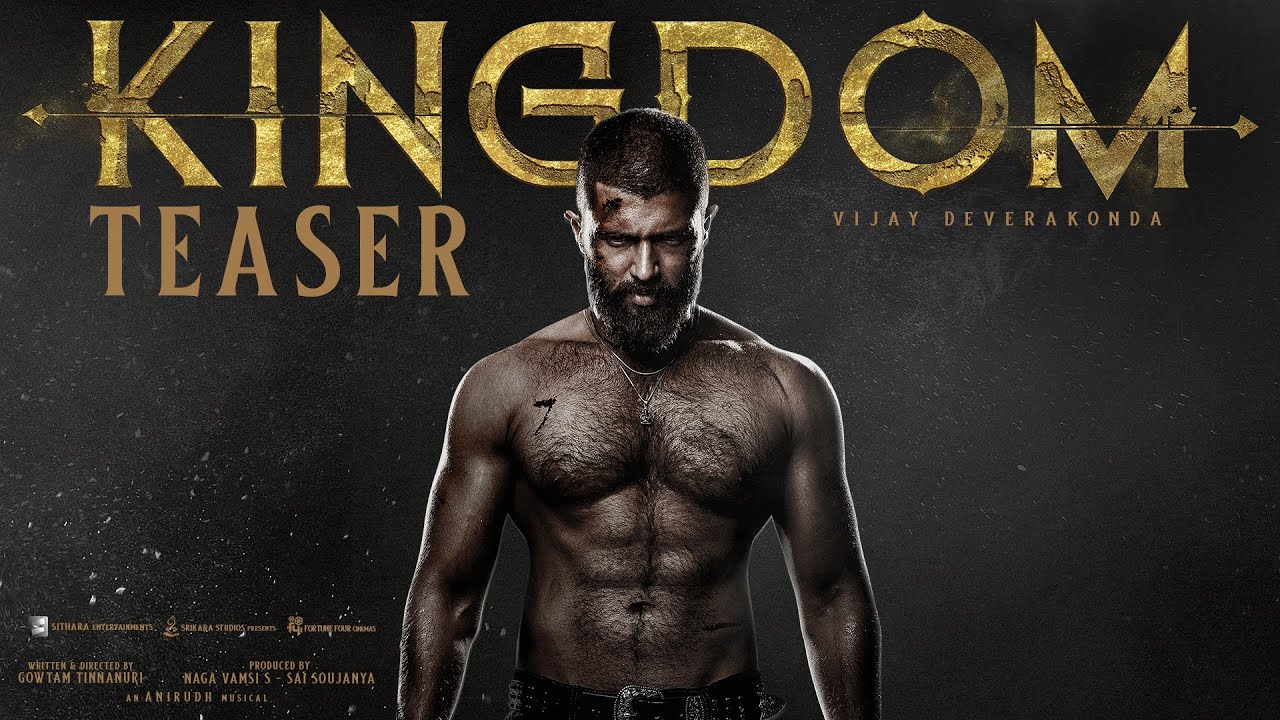Kingdom (2025) Review: Gowtam Tinnanuri’s Vision Redefines Telugu Period Drama
Introduction
Gowtam Tinnanuri’s ambitious epic, *Kingdom*, redefines the scope of Telugu cinema by weaving historical grandeur with intense character drama. Best known for his emotional storytelling in *Jersey*, the director takes a bold leap with this large-scale reincarnation saga set against the backdrop of war and spiritual awakening.
Director’s Storytelling Style
Tinnanuri retains his signature style of emotionally resonant storytelling, even within this massive war epic. Despite the scale, his focus never drifts from the inner journeys of his characters—especially Suri, the protagonist, played by Vijay Deverakonda. This internal-external storytelling duality becomes the film’s greatest strength.
The director balances action with reflection. Scenes of violence are followed by quiet emotional beats, often using long takes and minimal dialogue to convey character evolution. His past experience with character-driven dramas shines through.
Visionary Themes Explored
Gowtam Tinnanuri uses the narrative to explore reincarnation, legacy, trauma, and the burden of leadership. His vision is steeped in both mythology and grounded realism. Suri’s evolution from a tribal prisoner to a reincarnated warrior reflects deeper philosophical musings on destiny and identity.
The film also addresses loyalty and moral ambiguity. No character is purely heroic or villainous—each is shaped by circumstance and belief. This nuanced exploration of right and wrong is consistent with Tinnanuri’s belief in grey storytelling, as seen in his earlier works.
Director’s Approach to Character Building
The film’s characters are slowly fleshed out, with the script offering enough room for each to grow. Bhagyashri Borse’s character, though initially presented as a traditional love interest, transforms into a symbol of resilience and sacrifice.
Gowtam gives each supporting character a unique narrative arc—Satyadev’s character, for instance, evolves from antagonist to tragic hero, a subtle shift that only a patient director like Tinnanuri can craft.
Directorial Choices in Cinematic Structure
The screenplay is non-linear, jumping between timelines to enhance the reincarnation theme. Gowtam cleverly uses visual callbacks and symbolic imagery to link Suri’s past and present lives. This structure keeps the audience intellectually engaged without sacrificing emotional resonance.
Chapters divide the story much like a novel—each with its own thematic focus (e.g., betrayal, rebirth, redemption). These segments are marked by title cards and distinct visual tones, adding artistic cohesion.
Director’s Collaboration with Key Departments
Tinnanuri’s collaboration with cinematographers Girish Gangadharan and Jomon T. John ensures that each frame reflects his storytelling goals—whether it’s the earthy realism of tribal life or the dreamlike sequences of reincarnation.
His work with music composer Anirudh Ravichander adds emotional weight to key scenes. The director’s taste in background score is minimalist, allowing music to support rather than overpower the visuals.
Gowtam Tinnanuri’s Growth as a Filmmaker
*Kingdom* shows Gowtam’s transition from emotionally intimate dramas to cinematic epics, without compromising on his narrative integrity. This leap mirrors what S.S. Rajamouli achieved post-*Magadheera*, yet Tinnanuri’s style remains more grounded and cerebral.
He explores genre without losing identity—a mark of true directorial maturity.
Reception of His Vision
Early responses from screenings and teaser previews across platforms like Iradha Movies and Bappamtv Movies highlight how audiences are captivated by the director’s unique voice.
His attention to historical detail and thematic richness sets him apart in an industry where spectacle often outweighs substance.
Star Rating Table
| Aspect | Rating |
|---|---|
| Direction | 5/5 |
| Storytelling | 4.5/5 |
| Character Development | 4.5/5 |
| Thematic Depth | 4.5/5 |
| Overall Vision | 4.5/5 |
Final Verdict
With *Kingdom*, Gowtam Tinnanuri proves himself as one of the most versatile and visionary directors of his generation. The film is both a visual extravaganza and a deeply human story, proving that scale and soul can co-exist. The movie is a cinematic achievement likely to be celebrated on iBomma Movies, Bappamtv Movies, and Iradha Movies alike.
FAQs
What makes Gowtam Tinnanuri’s direction stand out in Kingdom?
His blend of emotional storytelling with large-scale visuals ensures both heart and spectacle are present throughout the film.
How does the director balance action and emotion?
He uses long takes, minimal dialogue, and symbolic storytelling to create emotional depth amid the action.
Is Kingdom similar to Tinnanuri’s earlier films?
While it’s grander in scale, it retains his signature focus on character-driven, emotionally rich narratives.
What genre does Kingdom fall into?
It’s a period action-drama with elements of reincarnation, mythology, and war, brought together by a grounded directorial vision.
Will Kingdom appeal to mainstream audiences?
Yes, its mix of visual grandeur and philosophical themes offers something for both mass and class viewers.



